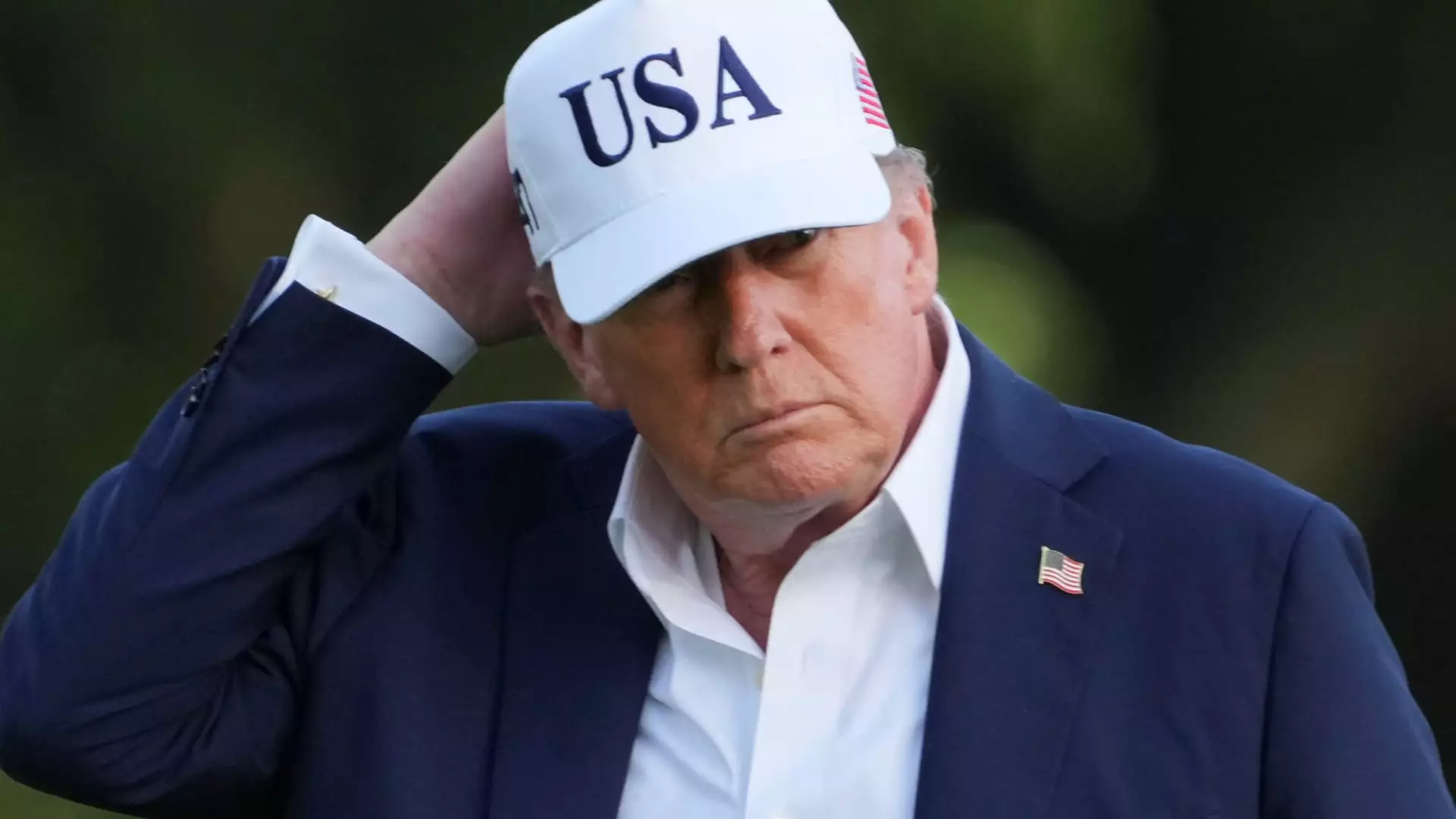The recent announcement by the U.S. government to impose a steep 25% tariff on imports from Japan and South Korea signals a troubling shift towards aggressive protectionism. While defending such measures as necessary corrections to perceived trade imbalances, this move reveals a shortsighted approach that risks undermining long-term economic stability and global cooperation. Tariffs, often portrayed as tools for safeguarding national interests, seldom consider the broader implications for innovation, consumer welfare, and international diplomacy. The decision to unilaterally elevate tariffs—especially on two of America’s most technologically advanced allies—shows a reckless disregard for the complexities of modern global supply chains and the mutual benefits that can be derived from fair trade.
This aggressive stance does little to address the root causes of trade deficits. Instead, it fosters an environment of economic hostility that might provoke retaliatory measures, thereby escalating into a trade war. Such escalation often results in higher costs for consumers and businesses, stifling growth and innovation in sectors critical to America’s future. It’s misguided to believe that forcing other nations to accept punitive tariffs will narrow deficits or lead to equitable trade relationships. Instead, it risks isolating the United States in a fragile web of diplomatic resentment, where short-term political wins overshadow pragmatic economic strategies.
The Illusion of Deficit as a Measure of National Prosperity
A key flaw in the rationale behind these tariffs is the obsession with trade deficits as a primary indicator of economic health. Protecting domestic industries by punishing countries with which the U.S. has substantial deficits fundamentally misunderstands how modern economies function. Trade deficits are, at their core, a reflection of broader economic trends—such as investment flows, consumer preferences, and technological leadership—not necessarily signs of unfair practices or exploitation.
In targeting Japan and South Korea specifically, the U.S. appears to ignore their significant contributions to global innovation, advanced manufacturing, and technological development. These nations are not mere economic adversaries but vital collaborators in a complex interconnected system. Disrupting this delicate balance with tariffs may benefit short-term political narratives but ultimately hinders the U.S.’s own economic prospects. A more nuanced approach—focused on strategic partnerships, intellectual property protections, and fair trade agreements—would serve the long-term interests of American consumers and industries more effectively than tariffs that threaten to escalate into tit-for-tat trade disputes.
Diplomacy or Domination? The Price of Bluster
The tone of the recent U.S. letters, which warn Japan and South Korea not to retaliate and threaten to increase tariffs if they do, reveals a myopic view of international relations. It’s a posture rooted in dominance rather than dialogue—a dangerous game that undercuts diplomacy at a time when global cooperation is more vital than ever. By framing trade tensions as a form of negotiation where punitive tariffs are levered as threats, the U.S. risks alienating allies whose cooperation is crucial for addressing challenges such as climate change, security, and technological innovation.
Furthermore, the emphasis on tariffs as a means of “correcting” trade imbalances perpetuates a zero-sum mindset that has little room for mutual benefit. Effective international trade involves negotiation, compromise, and mutual respect—not unilateral demands backed by threats of economic punishment. If the aim truly is to foster better relationships, the focus should shift toward constructive engagement, emphasizing shared goals and equitable exchanges, rather than punitive tariffs that erode trust and sow discord.
Questioning the Endgame
The broader implications of Trump’s tariff strategy call into question whether it’s about economic pragmatism or political signaling. In a rapidly changing global landscape, such protectionist tactics threaten to undo decades of diplomatic progress and economic integration. They risk reinforcing nationalism and economic populism—forces that threaten to isolate the U.S. from its most valuable allies and trading partners.
It’s vital to scrutinize whether these tariffs are grounded in genuine economic necessity or serve primarily as political leverage, which ultimately undermine the very framework of free and fair trade. Engaging in open conversations and negotiations rooted in fairness, transparency, and mutual respect should be the goal. Instead, current policies seem to prioritize short-term political capital over the enduring stability of the global economy, with tangible costs that will likely be felt by American workers, consumers, and industries for years to come.


Leave a Reply